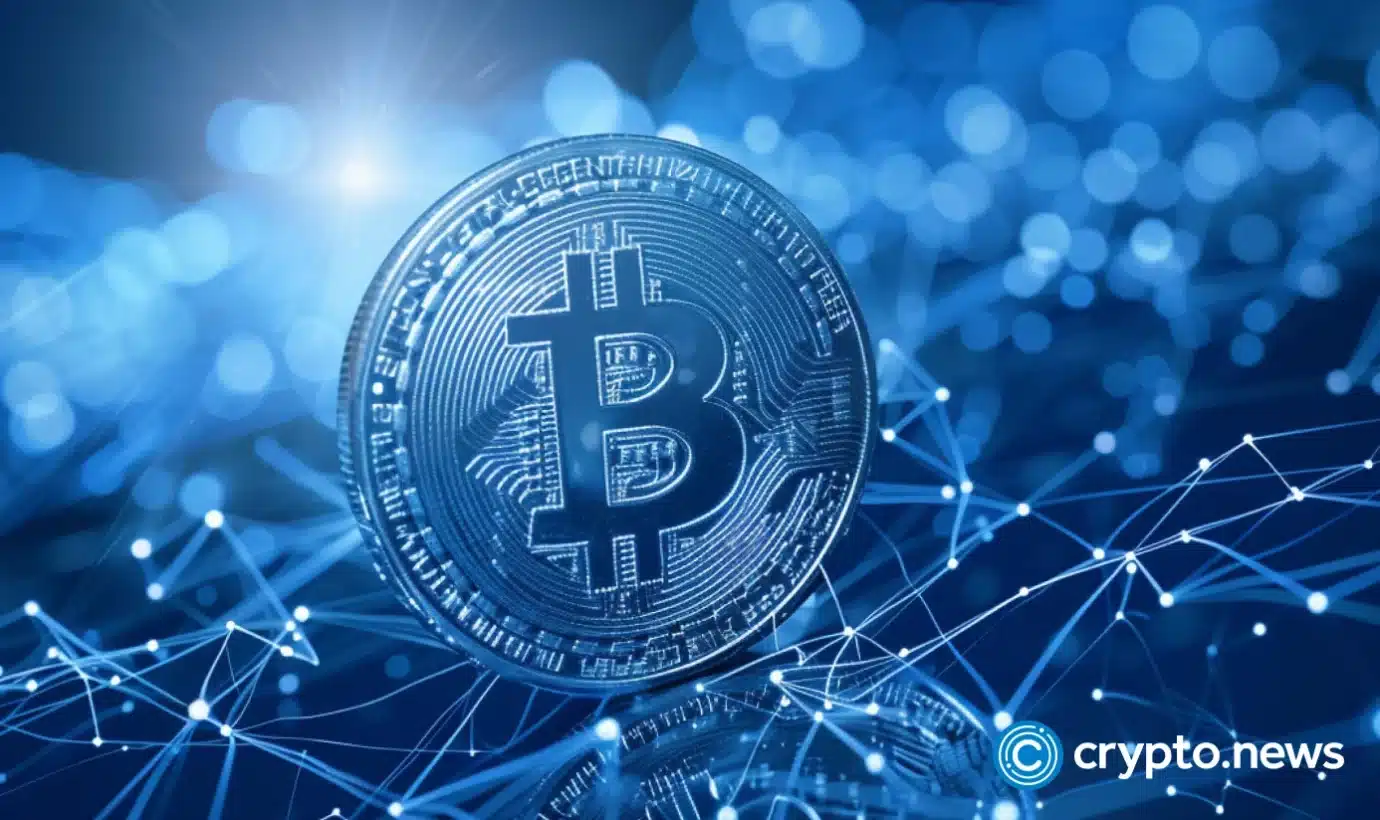Coinspeaker
Blockchain Gaming Sector Expected to Reach $614.91B in 2030
With the current global cryptocurrency market valued at around $1.54 trillion, the blockchain gaming sector is set to make waves over the next six years.
According to research conducted by analysts at Fortune Business Insights, the decentralized finance gaming sector (GameFi) is projected to hit an impressive $614.91 billion by 2030 at a compound annual growth rate (CAGR) of 21.8%.
Blockchain Games to Hit New Milestone in 2030
This new growth will be propelled by many factors, including the increased interest in online gaming after the COVID-19 pandemic, which affected the entire global market.
During the lockdown, people spent most of their time exploring different virtual gaming platforms, which brought high traffic for many blockchain games.
The surge brought the GameFi market to reach $128.62 billion in 2022, and in 2023, it grew to $154.46 billion and is now expected to maintain the growth trajectory to a new all-time high of $614.91 billion in 2030.
In addition to the impact of the pandemic, the Fortune Business Insight research found other major factors, such as growing demand for decentralized games for better experience and increased appetite for non-fungible tokens (NFTs).
Between 2020 and 2023, decentralized finance platforms such as Sandbox and Oasy were among the most popular gaming projects that caught users’ interest in Web3. These gaming platforms give players incentives in the form of tokens and NFTs for playing and completing missions, creating a new level of value for in-game assets in blockchain technology.
Analysts at Fortune believe that the decentralized gaming sector will be a crucial driver to propel growth during the forecast period.
“With the potential to transform the gaming industry, decentralized gaming will become the future, favoring significant growth in the market during the forecast period,” the report reads.
North America Dominates the GameFi Market
In terms of game types, the research found that role-playing games will have a significant influence on the market growth during the forecast period. The blockchain gaming sector is categorized into Role-playing games (RPG), multiplayer games, and collectible games. However, RPC games are estimated to hold the highest CAGR due to their uniqueness.
When it comes to the regional growth process, the research pointed out that North America holds the highest blockchain gaming market share. The region is expected to continue its dominance due to the popularity of NFTs and other digital assets among players.
Around 50% of gamers in the location hold cryptocurrencies, while 80% of the players are interested in using their assets to purchase items and make transactions while playing games.
Another important factor driving the market growth in North America is companies integrating blockchain services into games that would serve as an online marketplace for digital assets.
The European gaming sector is not left behind. The region is anticipated to experience strong growth over the forecast period. Fortune analysts believe that local regulatory frameworks in the location will create a favorable atmosphere for investors to explore the market.
Although North America and Europe are expected to contribute significantly towards the projected rise in blockchain games, the research said Asia Pacific would hold the highest CAGR due to the vast number of players and the presence of major gaming developers in China, Japan, and South Korea.
According to a separate study by DappRadar and Pacific Meta, Asia is home to about 1.7 billion gamers, more than half of all blockchain gaming users around the world.
Roadblocks Restraining Development in Blockchain Gaming
Analysts at Fortune found that the flourishing landscape of blockchain gaming is not without its hurdles. As such, they have pinpointed several important factors hindering the sector’s growth.
According to the research, the lack of clear regulatory frameworks for the regulations of cryptocurrencies and NFTs poses a significant challenge to the growth of the GameFi sector.
Additionally, the relatively low adoption rate among gamers worldwide affects the evolution of the market, suggesting that blockchain games have yet to carve a substantial niche. Another factor is the unavailability of decentralized games for players unwilling to pay registration fees and other payments to access centralized gaming platforms.





